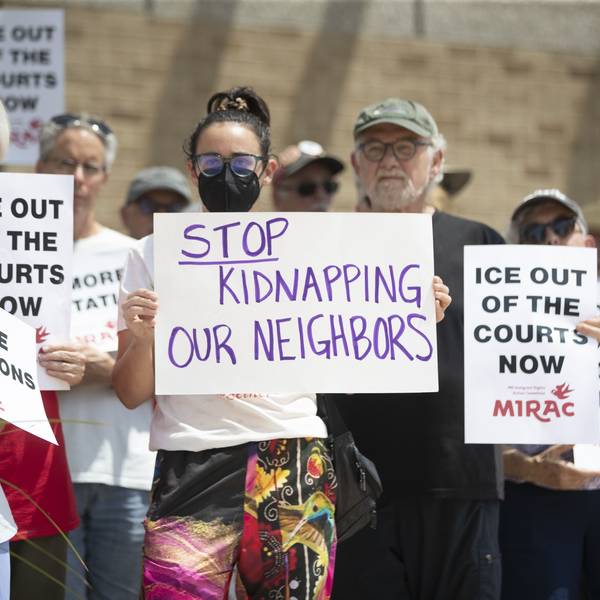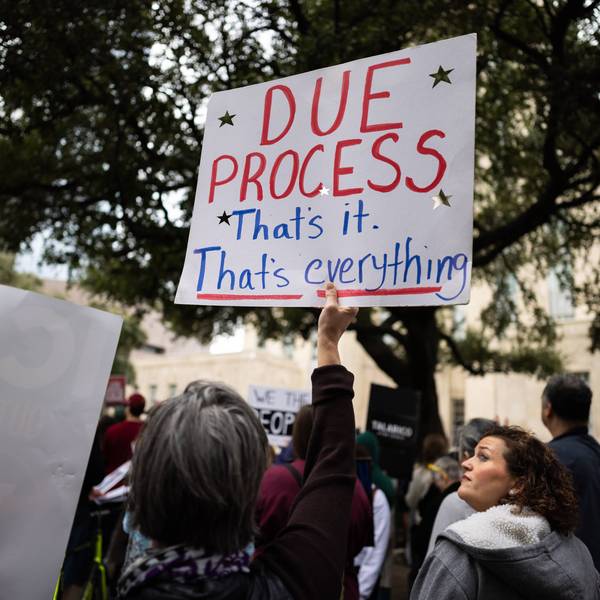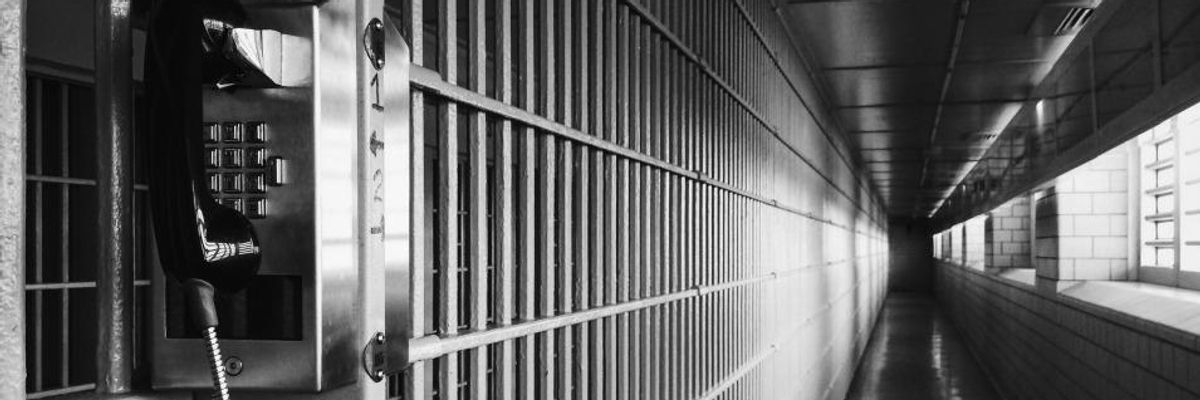While applauding the end of the cash bail system in California, civil rights groups on Wednesday pushed back against reports that a new measure signed into law this week achieved truly far-reaching criminal justice reform, and noted that judges are still likely to subject accused citizens to lengthy, racially-biased detentions.
Gov. Jerry Brown (D-Calif.) signed the California Money Bail Reform Act (SB10) days after the state Assembly passed the legislation in a 41-27 vote. The law is set to go into effect in October 2019.
But the legislation does nothing to end unfair pre-trial detentions which cause job loss, housing instability, and trauma for many suspects and their families, noted the American Civil Liberties Union (ACLU).
The law also "lacks protections against racial bias," Natasha Minsker, director of the ACLU's California Center for Advocacy & Policy, told the New York Times.
Under the law, the state's judicial council will create a system to assess suspects as low-, moderate-, and high-risk for posing a danger to the community or fleeing before their trial. The criteria they will use to make such assessments remains unclear.
"It gives pretty much all the power to judges who, for the most part, were the major culprit in high incarceration rates, particularly of poor people, because they would use high bail in order to keep someone behind bars," public defender Jeff Adachi told Mother Jones.
After endorsing the bill for two years, the Essie Justice Group--a California-based prison reform advocacy group formed by women whose loved ones have been incarcerated--withdrew its support two weeks before it passed, citing changes to the bill's language which would send the state "on a path to more incarceration, not less."
The law, the group said in a statement, "legitimizes the mass incarceration of people pretrial through a 'rebuttable presumption' of detention" and "entrenches race, gender, and socioeconomic bias in the criminal justice system through a heavy reliance on risk assessment tools."
"It gives pretty much all the power to judges who, for the most part, were the major culprit in high incarceration rates, particularly of poor people, because they would use high bail in order to keep someone behind bars." --Jeff Adachi, public defenderPrison reform advocates have been pushing aggressively for cash bail reform in recent years, arguing that the system punishes accused offenders and their families for living in poverty or even simply lacking disposable income. In California, the median amount a judge has ordered families to come up with in order to allow their loved one to go free while awaiting trial is $50,000, according to the Public Policy Institute of California. For the rest of the nation, the median bail amount is $10,000--still unfeasible for many American families, 40 percent of whom can't afford a $400 emergency expense.
"The financial burden of this fee harms individuals, it harms families, and it disproportionately affects Black and low-income communities," wrote the ACLU in a report last year. "The only winner is the bottom line of big for-profit businesses" which sell and insure bail bonds.
Kentucky, New Mexico, and New Jersey have curbed their use of cash bail, but California is the first state to abolish the practice.
Demanding that lawmakers go further to protect Californians from unfair detention, Essie Justice Group vowed to "join forces with attorneys to litigate the unconstitutionality of SB10 and explore the launch of community oversight initiatives to monitor and check judicial behavior and prosecutorial conduct under this new regressive policy."




